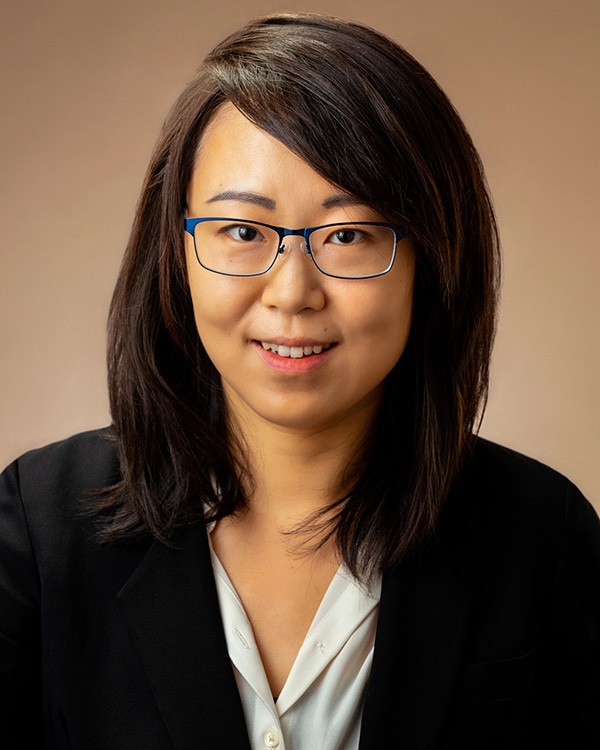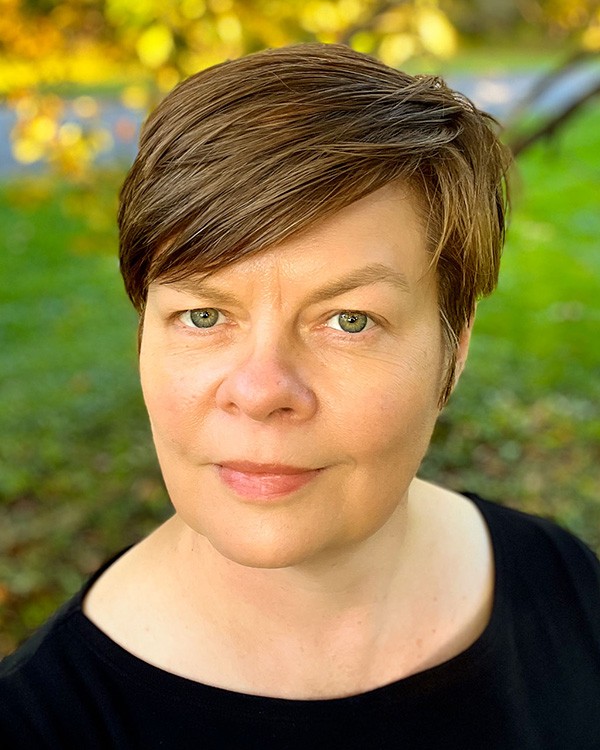Mycologist, synthetic biologist win 2024 Schwartz research awards
By Holly Hartigan, Cornell Chronicle
Two faculty members – one studying killer fungi and the other using yeast to find safer painkillers – are winners of the 2024 Schwartz Research Funds for female faculty or faculty who enhance the diversity, equity and inclusion goals of the university and whose work is in the life sciences.
Sijin Li, assistant professor of chemical and biomolecular engineering in Cornell Engineering, and Kathie Hodge, associate professor of plant pathology and plant-microbe biology and associate director of teaching in the School of Integrative Plant Science in the College of Agriculture and Life Sciences (CALS), each received a $25,000 award.
The awards are given annually to one assistant professor and one associate professor. Projects funded are expected to generate early data or open a new line of inquiry that may become the foundation of future research.
The funds are made possible through support from Joan Poyner Schwartz ’65 and Ronald H. Schwartz ’65, who were chemistry majors in the College of Arts and Sciences. They had long careers at the National Institutes of Health, with legacies of promoting the work and careers of women in the life sciences.
“We are grateful for the Schwartzes’ support for faculty conducting innovative research,” said Yael Levitte, senior associate vice provost for faculty development and diversity. “The funds help recipients acquire preliminary data and launch new research directions. Past recipients credit the fund in allowing them to push their research to a new direction.”
Li will use the funding to further her lab’s search for a plant-derived painkiller that has less dangerous side effects than opioids.
Her lab has developed a method to use yeast as a mini model to learn more about molecules inside plants. Researchers put plant genes into brewer’s yeast, which grows faster than plants but mimics their environment. This approach reveals the function of those genes in a faster and easier way than other screening methods.
“We can use the yeast to rebuild the entire synthetic machinery, and we can just brew the medicine out from the yeast culture, just like beer brewing,” she said. “We try to use a simpler host to study the more complicated medicinal questions in plants.”
Li and her research group demonstrated their yeast model with the tropical kratom tree in previous research. She plans to use the Schwartz funds to continue studying a promising chemical derived from kratom called mitragynine, which is a biased painkiller, meaning it has painkilling effect with potentially fewer dangerous side effects.
Hodge will use her grant to return to an early interest: entomophthorales, an ancient lineage of fungi that specializes in killing insects.
“We’re very lucky that here on the Cornell campus, there’s a United States Department of Agriculture lab that has one of the world’s largest cultural collections of these fungi, frozen under liquid nitrogen,” Hodge said. “I worked with that collection long ago. Now I’m going to go back, I’m going to pull up some of my ‘old friends’ from under liquid nitrogen, grow them up in culture, and then I’m going to sequence their genomes.
“And once I build a dataset of those genomes of these fungi,” she said, “I can start to answer some really interesting questions about how these fungi first evolved, how they interact with their hosts and what evolutionary innovations have led to their success.”
With only 5% of the world’s fungi described, and even fewer understood, Hodge said it’s important to discover more about what shares space on the Earth with us.
“Sometimes we can learn things from how a fungus works that we can apply to systems that matter to us, and other times we can find a novel chemical that might be useful to us,” she said.
In addition, Zhiting Tian, associate professor of mechanical and aerospace engineering in Cornell Engineering; Amy Krosch, assistant professor of psychology in the College of Arts and Sciences; and Jillian Goldfarb, associate professor of chemical and biomolecular engineering and associate dean’s fellow for undergraduate programs in Cornell Engineering, each received a $1,500 Schwartz grant to support conference-related travel.
Media Contact
Get Cornell news delivered right to your inbox.
Subscribe


